- Clone
- RMG1-1 (See other available formats)
- Regulatory Status
- RUO
- Other Names
- Immunoglobulin G1
- Isotype
- Rat IgG
- Ave. Rating
- Submit a Review
- Product Citations
- 8 publications
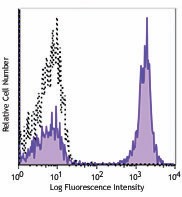
| Cat # | Size | Price | Quantity Check Availability | Save | ||
|---|---|---|---|---|---|---|
| 406617 | 25 µg | 89 CHF | ||||
| 406618 | 100 µg | 194 CHF | ||||
The RMG1-1 monoclonal antibody reacts with immunoglobulin G1 (IgG1) in all tested mouse haplotype (Igh-a and b). It does not react with other isotypes. The RMG1-1 monoclonal antibody may be used as a primary or secondary reagent for ELISA or immunofluorescent analysis.
Product DetailsProduct Details
- Verified Reactivity
- Mouse
- Antibody Type
- Monoclonal
- Host Species
- Rat
- Immunogen
- Mouse Ig cocktail
- Formulation
- Phosphate-buffered solution, pH 7.2, containing 0.09% sodium azide.
- Preparation
- The antibody was purified by affinity chromatography and conjugated with Alexa Fluor® 647 under optimal conditions.
- Concentration
- 0.5 mg/mL
- Storage & Handling
- The antibody solution should be stored undiluted between 2°C and 8°C, and protected from prolonged exposure to light. Do not freeze.
- Application
-
FC - Quality tested
IHC-F, IHC-P - Verified - Recommended Usage
-
Each lot of this antibody is quality control tested by immunofluorescent staining with flow cytometric analysis. For flow cytometric staining, the suggested use of this reagent is ≤ 0.25 µg per million cells in 100 µL volume. For immunohistochemistry on frozen tissue sections, a concentration range of 2.5 - 5.0 µg/mL is suggested. For immunohistochemistry on formalin-fixed paraffin-embedded tissue sections, a concentration range of 2 - 10 µg/mL is suggested. It is recommended that the reagent be titrated for optimal performance for each application.
* Alexa Fluor® 647 has a maximum emission of 668 nm when it is excited at 633 nm / 635 nm.
Alexa Fluor® and Pacific Blue™ are trademarks of Life Technologies Corporation.
View full statement regarding label licenses - Excitation Laser
-
Red Laser (633 nm)
-
Application References
(PubMed link indicates BioLegend citation) - Product Citations
-
- RRID
-
AB_2563476 (BioLegend Cat. No. 406617)
AB_2563477 (BioLegend Cat. No. 406618)
Related FAQs
Other Formats
View All IgG1 Reagents Request Custom Conjugation| Description | Clone | Applications |
|---|---|---|
| PerCP/Cyanine5.5 anti-mouse IgG1 | RMG1-1 | FC |
| Purified anti-mouse IgG1 | RMG1-1 | ELISA,FC |
| Biotin anti-mouse IgG1 | RMG1-1 | ELISA,IHC-F |
| FITC anti-mouse IgG1 | RMG1-1 | FC |
| PE anti-mouse IgG1 | RMG1-1 | FC |
| APC anti-mouse IgG1 | RMG1-1 | FC |
| PE/Cyanine7 anti-mouse IgG1 | RMG1-1 | FC |
| Brilliant Violet 421™ anti-mouse IgG1 | RMG1-1 | FC |
| Alexa Fluor® 647 anti-mouse IgG1 | RMG1-1 | FC,IHC-F,IHC-P |
| APC/Cyanine7 anti-mouse IgG1 | RMG1-1 | FC |
| Brilliant Violet 510™ anti-mouse IgG1 | RMG1-1 | FC |
| Alexa Fluor® 488 anti-mouse IgG1 | RMG1-1 | FC |
| APC/Fire™ 750 anti-mouse IgG1 | RMG1-1 | FC |
| PE/Dazzle™ 594 anti-mouse IgG1 | RMG1-1 | FC |
| Brilliant Violet 650™ anti-mouse IgG1 | RMG1-1 | FC |
| Alexa Fluor® 700 anti-mouse IgG1 | RMG1-1 | FC |
| Alexa Fluor® 594 anti-mouse IgG1 | RMG1-1 | IHC-P |
| TotalSeq™-A1167 anti-mouse IgG1 | RMG1-1 | PG |
| TotalSeq™-C1167 anti-mouse IgG1 | RMG1-1 | PG |
Customers Also Purchased
Compare Data Across All Formats
This data display is provided for general comparisons between formats.
Your actual data may vary due to variations in samples, target cells, instruments and their settings, staining conditions, and other factors.
If you need assistance with selecting the best format contact our expert technical support team.
-
PerCP/Cyanine5.5 anti-mouse IgG1
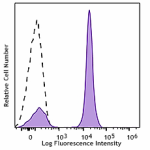
Human peripheral blood lymphocytes were stained with purifie... -
Purified anti-mouse IgG1
-
Biotin anti-mouse IgG1
-
FITC anti-mouse IgG1
-
PE anti-mouse IgG1
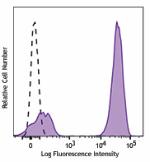
Human peripheral blood lymphocytes were stained with (filled... -
APC anti-mouse IgG1
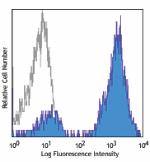
Human peripheral blood lymphocytes were stained with purifie... -
PE/Cyanine7 anti-mouse IgG1
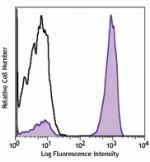
Human peripheral blood lymphocytes were stained with purifie... -
Brilliant Violet 421™ anti-mouse IgG1
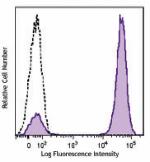
Human peripheral blood lymphocytes were stained with purifie... -
Alexa Fluor® 647 anti-mouse IgG1
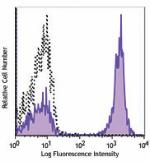
Human peripheral blood lymphocytes were stained with purifie... 
FVB/N mouse frozen thymus section was fixed with 4% paraform... 
IHC staining of Alexa Fluor® 647 anti-mouse IgG1 on formalin... -
APC/Cyanine7 anti-mouse IgG1
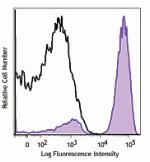
Human peripheral blood lymphocytes were stained with purifie... -
Brilliant Violet 510™ anti-mouse IgG1
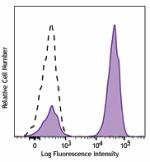
Human peripheral blood lymphocytes were stained with purifie... -
Alexa Fluor® 488 anti-mouse IgG1
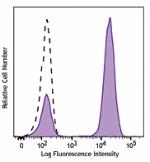
Human peripheral blood lymphocytes were stained with (filled... -
APC/Fire™ 750 anti-mouse IgG1
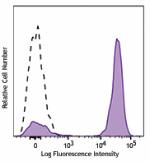
Human peripheral blood lymphocytes were stained with purifi... -
PE/Dazzle™ 594 anti-mouse IgG1
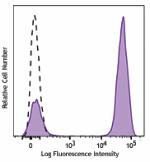
Human peripheral blood lymphocytes were stained with (filled... -
Brilliant Violet 650™ anti-mouse IgG1
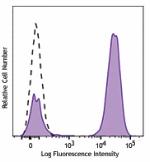
Human peripheral blood lymphocytes were stained with purifie... -
Alexa Fluor® 700 anti-mouse IgG1
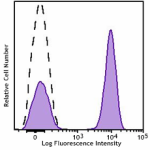
Human peripheral blood lymphocytes were stained with (filled... -
Alexa Fluor® 594 anti-mouse IgG1
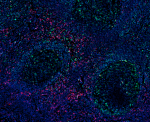
Human paraffin-embedded tonsil tissue slices were prepared w... -
TotalSeq™-A1167 anti-mouse IgG1
-
TotalSeq™-C1167 anti-mouse IgG1

 Login / Register
Login / Register 












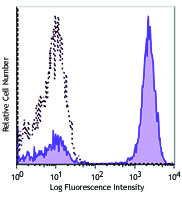
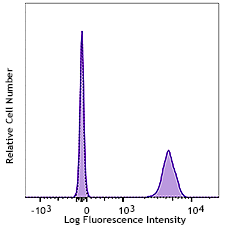
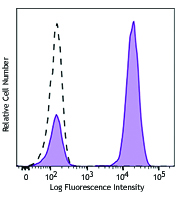
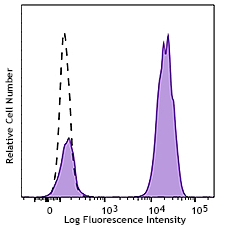



Follow Us